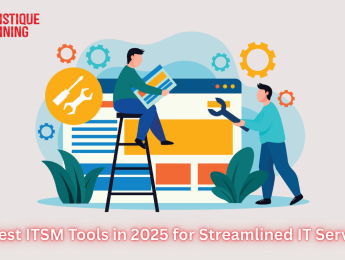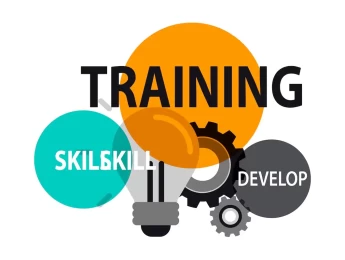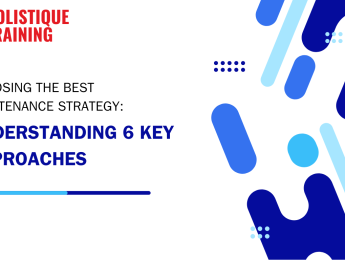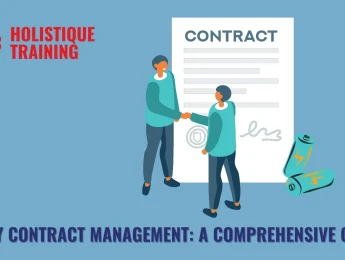Introduction
If you’re here, chances are you’re thinking about what’s next for your career, and you’re not alone. Many professionals reach a point where they realize that experience alone isn’t enough. You need something tangible to back it up, something that says, “I’m serious about growing, leading, and making an impact.”
That’s exactly where AXELOS ProPath comes in. It's not just another certification; it’s a clear, structured roadmap designed to help you stand out in a crowded job market. Whether you’re stepping into project management for the first time or leading complex portfolios across industries, ProPath gives you a competitive edge, and a serious boost to your confidence.
In this guide, we'll walk you through everything you need to know about AXELOS ProPath, how it works, and how it could be the game-changer you’ve been looking for.
Understanding AXELOS and ProPath
When it comes to professional certifications in project management, IT service management, and program governance, AXELOS stands as a global benchmark. Established in 2013 as a joint venture between the UK Government and Capita plc, AXELOS quickly became synonymous with best practices that drive organizational success.
Their most recognized frameworks include:
- PRINCE2®: A globally adopted project management methodology.
- ITIL®: The world’s leading framework for IT service management.
- MSP® (Managing Successful Programmes): A methodology for managing complex program structures.
These frameworks are trusted by organizations worldwide to:
- Manage complex projects effectively.
- Deliver high-quality IT services.
- Lead and govern strategic initiatives with consistency and control.
Recognizing the rapidly evolving needs of today’s professionals and organizations, AXELOS introduced ProPath, but ProPath isn’t just "another" certification. It's a strategic, structured journey designed to elevate your career step-by-step.
In essence, ProPath is:
- A guided career path rather than a random set of certifications.
- A way to build layered expertise, starting from project delivery to program and portfolio leadership.
- A framework that signals to employers that a professional is serious about leadership, governance, and successful delivery.
While AXELOS provides the individual frameworks, ProPath weaves them together into coherent, powerful pathways that foster not just knowledge, but real-world, strategic impact.
Why AXELOS Created ProPath
The professional world is moving faster than ever before. Digital transformation, remote work, new technologies, and global competition are reshaping industries at a pace that demands smarter, more agile leaders. AXELOS recognized this shift and understood that traditional, standalone certifications were no longer enough. Professionals and employers needed something more, and that's where ProPath was born. Here’s why AXELOS created ProPath:
- To provide a clear career development pathway:
Instead of professionals collecting certifications without a cohesive strategy, ProPath offers structured progression from foundational knowledge to advanced leadership skills. - To bridge knowledge gaps between certifications:
Previously, someone might earn PRINCE2®, MSP®, and ITIL® separately, without a unified learning journey. ProPath connects these certifications thoughtfully, showing how they complement each other in practice. - To meet market demands for multi-skilled professionals:
Organizations today look for individuals who can manage projects, align programs to business goals, and oversee portfolios strategically. ProPath bundles certifications to meet exactly these complex demands. - To future-proof careers:
As industries evolve, employers prioritize leaders who demonstrate not just technical knowledge, but adaptability, governance understanding, and strategic insight. ProPath prepares professionals to stay relevant over the long term. - To simplify the decision-making process:
With so many certifications available, it can be confusing for professionals to know which one to pursue next. ProPath simplifies this by offering clear, targeted pathways for different career goals.
In short, ProPath is AXELOS’s answer to the modern demand for smarter, more connected career-building, making sure that skills are not only earned but are strategically layered for maximum impact.
How ProPath is Structured
At its core, AXELOS ProPath is designed to offer a clear, structured path for career progression in project, program, and portfolio management. Instead of treating certifications as isolated achievements, ProPath combines them into logical, goal-oriented tracks that help professionals climb the career ladder methodically.
Rather than a “one-size-fits-all” approach, AXELOS designed three specialized certification tracks to suit different career stages and ambitions.
Let’s break down how ProPath is structured:
1. ProPath Project Expert: Building a Strong Foundation in Delivery
This track focuses on developing strong project management fundamentals, helping individuals deliver projects consistently, efficiently, and with measurable business value.
Key Certifications:
- PRINCE2® Practitioner, equipping you to run structured, controlled projects from initiation to closure.
- MSP® Foundation/Practitioner, helping you see how projects fit into larger program goals, not operate in isolation.
- MoR® (Management of Risk), ensuring you can anticipate, assess, and mitigate project risks proactively.
What you’ll master:
- Structured project delivery frameworks
- Stakeholder management and communication
- Integrating risk management into every project phase
Designed for:
- Project Managers
- Delivery Leads
- Professionals managing discrete, goal-driven projects
According to PMI’s Pulse of the Profession 2023 Report, organizations with standardized project management practices like PRINCE2 experience a 28% higher success rate in project outcomes compared to organizations without them.
At the Project Expert level, financial management is key to ensuring that projects are completed within scope and budget. Professionals managing individual projects need a solid understanding of budgeting, cost control, and resource allocation. To enhance your financial management skills, consider enrolling in the Project Planning, Financial Management, and Cost Oversight course. This comprehensive course equips participants with the essential skills in project planning, financial management, and cost oversight, ensuring projects are executed within defined parameters and aligned with organizational goals.
2. ProPath Programme Leader: Managing Organizational Change
The Programme Leader track goes beyond single projects. It equips professionals to lead multiple related projects that together deliver large-scale business transformation.
Key Certifications:
- MSP® Practitioner, mastering program design, delivery, and governance.
- PRINCE2 Agile® Practitioner, blending structure with agile delivery principles to adapt to changing program needs.
- P3O® Certification, building and managing offices that support program and portfolio delivery.
What you’ll master:
- Managing interdependencies between multiple projects
- Aligning program outcomes with strategic business goals
- Building governance structures that drive program success
Designed for:
- Senior Project Managers moving to program leadership
- Program Managers
- Change and Transformation Leads
3. ProPath Portfolio Director: Leading at the Strategic Level
The Portfolio Director track prepares professionals to think like executives, selecting, prioritizing, and managing a collection of programs and projects that align with an organization's broader strategy.
Key Certifications:
- MoP® (Management of Portfolios), focusing on balancing investments to optimize returns across multiple initiatives.
- P3O® Certification, ensuring robust portfolio support frameworks.
- PRINCE2 Agile® Practitioner, maintaining agility and governance even at the portfolio level.
What you’ll master:
- Strategic decision-making on project and program investments
- Prioritizing initiatives based on business value and risk
- Governing a portfolio for maximum strategic alignment and benefits realization
Designed for:
- Portfolio Managers
- Heads of PMOs
- Executives responsible for investment and change management
As ProPath progresses from the Project Expert track to the Program Leader and Portfolio Director levels, the complexity of financial management increases, with a greater emphasis on strategic alignment and financial oversight.
Effective financial governance ensures that resources are allocated properly and that each project or program delivers value. To deepen your understanding of the financial strategies that underpin these responsibilities, we recommend reading our article on Strategic Financial Management: Unraveling Accounting Policies.
Table: Summary of How ProPath is Structured
ProPath Track | Core Focus | Key Certifications | Targeted Roles |
Project Expert | Delivering individual projects | PRINCE2® Practitioner, MSP®, MoR® | Project Managers, Team Leads |
Programme Leader | Leading strategic change programs | MSP® Practitioner, PRINCE2 Agile®, P3O® | Program Managers, Senior PMs |
Portfolio Director | Managing organizational portfolios | MoP®, P3O®, PRINCE2 Agile® | Portfolio Directors, PMO Heads |
Why This Structure Matters
The ProPath structure isn’t just academically logical, it’s practically proven to improve organizational results. Having professionals with structured, layered certifications enables companies to:
- Complete more projects successfully
- Align initiatives better with business strategies
- Optimize resource use across the enterprise
Studies by PMI, Gartner, and PwC all consistently show that organizations with certified, structured project and program managers are significantly more successful than those without formalized development pathways.
ProPath Options Explained
In the AXELOS ProPath structure, there are three primary pathways, each designed to target a specific set of career goals. Whether you’re just starting your career or you’re looking to advance into a more strategic role, ProPath offers a range of customizable options to guide your professional development. Let’s explore the different tracks and their specific focus areas.
1. Project Expert Track: Mastering the Art of Project Delivery
The Project Expert track is ideal for those managing individual projects and focuses on core project management principles, with PRINCE2® being one of the most widely recognized methodologies for project management. If you're unfamiliar with PRINCE2®, you can learn more about this methodology in our detailed article on What Is PRINCE2 Project Management Methodology?.
For those looking to gain hands-on knowledge and certifications, consider enrolling in the Comprehensive Project Management PRINCE2® Certified course. This course offers an in-depth understanding of PRINCE2®, preparing you for both Foundation and Practitioner certifications, and providing the skills needed to manage projects effectively in various environments.
What You’ll Gain from This Track:
- Comprehensive Project Management Skills:
With certifications like PRINCE2® Practitioner, MSP® Foundation/Practitioner, and MoR®, you’ll gain a solid grounding in managing projects from start to finish, while addressing risks and stakeholder needs at every step. - Risk Management Expertise:
With MoR® certification, professionals will acquire the skills to identify, assess, and manage project risks, minimizing disruptions and ensuring consistent delivery. - Enhanced Project Delivery Frameworks:
As a Project Expert, you’ll be well-versed in structured methodologies that allow for predictable and repeatable success.
Who Should Pursue This Track?
- Project Managers looking to standardize and improve their project delivery process.
- Delivery Leads responsible for managing projects of various sizes.
- Risk Managers want to dive deeper into controlling project risks.
According to the Project Management Institute’s (PMI), companies with certified project managers are 28% more likely to successfully complete projects on time and within budget.
2. Programme Leader Track: Orchestrating Complex, Multi-Project Programs
The Programme Leader track is aimed at those who wish to expand their leadership capabilities to oversee multiple interconnected projects, also known as a program. This track emphasizes strategic management, stakeholder alignment, and change management across multiple projects within a program.
What You’ll Gain from This Track:
- Program Design and Governance Skills:
The MSP® Practitioner certification prepares professionals to design, govern, and manage programs effectively, ensuring that each project contributes to the overall program success. - Agile Methodologies for Large-Scale Programs:
PRINCE2 Agile® Practitioner certification enables flexibility in managing complex programs, integrating traditional project management principles with agile methodologies to ensure adaptability and responsiveness. - Portfolio and Program Integration:
With P3O® training, you’ll be equipped to establish efficient governance frameworks for program offices, ensuring that all projects and programs align with organizational goals and deliver measurable benefits.
Who Should Pursue This Track?
- Senior Project Managers looking to step into a program leadership role.
- Program Managers responsible for managing multiple projects.
- Change Leaders who oversee large-scale transformations.
3. Portfolio Director Track: Leading Strategic Investment and Organizational Change
The Portfolio Director track is for senior professionals responsible for making high-level decisions regarding which programs and projects should be prioritized based on business strategy. This track takes a strategic investment approach, ensuring that portfolio selections deliver the greatest return on investment and align with long-term business goals.
What You’ll Gain from This Track:
- Strategic Portfolio Management Skills:
Through MoP® (Management of Portfolios) certification, you’ll learn how to evaluate potential projects and programs based on their value to the organization, ensuring the portfolio is balanced and aligned with strategic priorities. - Governance and Resource Optimization:
With P3O® training, you’ll learn how to establish portfolio governance structures that improve decision-making, resource allocation, and project oversight. - Agile Portfolio Leadership:
The PRINCE2 Agile® Practitioner certification ensures that, even at the portfolio level, you remain agile and can pivot as needed in response to changing market conditions.
Who Should Pursue This Track?
- Portfolio Managers responsible for managing multiple programs and projects.
- PMO Heads overseeing resource allocation and portfolio performance.
- Executives who make high-level decisions about which initiatives to invest in.
Quick Table: Overview of ProPath Tracks
ProPath Track | Key Focus Areas | Core Certifications | Best Suited for |
Project Expert | Managing individual projects | PRINCE2® Practitioner, MSP®, MoR® | Project Managers, Delivery Leads |
Programme Leader | Overseeing multi-project programs | MSP® Practitioner, PRINCE2 Agile®, P3O® | Program Managers, Senior Project Leads |
Portfolio Director | Strategic portfolio leadership | MoP®, P3O®, PRINCE2 Agile® | Portfolio Managers, PMO Heads, Executives |
How ProPath Enhances Career Development
Employers don’t just want skills, they want proof of them. ProPath provides that proof, positioning you as a certified professional who understands strategy, governance, and delivery in a modern business environment.
According to recent reports, professionals holding certifications like PRINCE2 and MSP earn 20–30% higher salaries and are promoted faster compared to non-certified colleagues.
Data Table 1: Comparison of ProPath Routes
Pathway | Focus Area | Certifications Included | Target Roles |
ProPath Project Expert | Traditional Project Management | PRINCE2 Foundation + Practitioner, MSP Foundation + Practitioner | Project Managers, PMO Staff |
ProPath Agile Project Expert | Agile Project Management | PRINCE2 Agile Foundation + Practitioner, MSP Foundation + Practitioner | Agile Coaches, Scrum Masters |
ProPath Programme Leader | Program and Portfolio Management | MSP Foundation + Practitioner, MoP Foundation + Practitioner | Programme Managers, Portfolio Leaders |
How to Choose the Right ProPath
Choosing the right ProPath track can feel like a significant decision in your career, but understanding your current position, goals, and future aspirations will guide you toward the right path. AXELOS offers three distinct tracks, Project Expert, Programme Leader, and Portfolio Director, each tailored to different stages of your professional development. But how do you determine which one is right for you?
Let’s break down the factors to consider when selecting your ProPath track.
1. Assess Your Current Role and Experience Level
The first step in choosing the right ProPath is to evaluate your current job role and experience level. The ProPath tracks are designed to support professionals at various stages of their career, so understanding where you stand will help you decide which certification track aligns with your current responsibilities.
Consider:
- Project Expert Track: If you’re currently managing individual projects or just starting your career in project management, this track might be a great starting point. The certifications focus on core project management skills and will help you establish a strong foundation.
- Programme Leader Track: If you’re leading a team of project managers or overseeing a group of interrelated projects, this track might be ideal. It’s suitable for professionals who want to manage multiple projects simultaneously and gain a deeper understanding of program management.
- Portfolio Director Track: If you're already in a senior role where you manage large portfolios, or you aspire to reach an executive-level position overseeing organizational investments, this track will provide you with the advanced skills and tools needed for high-level decision-making and strategic oversight.
2. Align Your Career Goals
After evaluating your current role, you should think about where you want to go next. Are you aiming for a more strategic leadership role, or do you want to continue advancing in project management? Understanding your career goals will help you determine which ProPath track is most aligned with your ambitions.
Questions to Ask Yourself:
- Am I looking to lead larger teams and programs?
If yes, the Programme Leader track will give you the skills to oversee multiple projects and manage resources on a larger scale. - Do I want to make strategic decisions for my organization?
If you're aiming for an executive role that involves portfolio management, the Portfolio Director track will be more suitable. - Would I prefer to deepen my technical expertise in project management?
If you’re more focused on delivering individual projects successfully, the Project Expert track will refine your skills and build a solid foundation for your career.
3. Consider Industry Demands and Trends
It’s essential to consider industry demands when choosing a ProPath. Different sectors might value different aspects of project and program management. For instance:
- Tech industries may value agile project management skills more, making the PRINCE2 Agile® Practitioner certification a key asset.
- Construction or government sectors might focus on traditional project management approaches, making PRINCE2® Practitioner more relevant.
Moreover, programs and portfolios are becoming increasingly important as businesses scale. Project management is expected to grow by 33% through 2027, which emphasizes the value of program and portfolio management certifications as organizations expand.
4. Evaluate the Certification Requirements
Each ProPath certification has its own prerequisites and requirements, so it's important to review these carefully. While some tracks require specific entry-level certifications (such as PRINCE2® Foundation), others have more advanced requirements (like PRINCE2 Agile® or MoP®).
Consider whether you’re already qualified for a track or if you need to gain additional experience or certifications first. This will help you plan your learning journey more effectively.
5. Think About Your Preferred Learning Style
AXELOS offers a variety of learning methods for their ProPath certifications, from online courses to classroom sessions. Choose a learning style that fits your schedule and preferred way of studying:
- Self-paced online learning may work best if you prefer to learn on your own schedule.
- In-person workshops might be more suitable if you prefer guided instruction and networking opportunities.
Aligning your learning style with the structure of the certification will ensure that you stay engaged and on track throughout the journey.
Quick Table: Choosing the Right ProPath Track
Career Stage | Track Fit | Key Focus Areas | Example Certifications |
Early to Mid Career | Project Expert | Project delivery, risk management | PRINCE2® Practitioner, MSP® Foundation |
Mid Career | Programme Leader | Leading programs, multi-project delivery | MSP® Practitioner, PRINCE2 Agile® Practitioner |
Senior Career/Executive | Portfolio Director | Strategic portfolio governance | MoP®, P3O® |
The Certification Process Step-by-Step
- Pick a Track: Project Expert, Agile Project Expert, or Programme Leader.
- Complete Certifications: Enroll in training and pass exams.
- Submit Achievements: Showcase certifications via your candidate portal.
- Receive Badge: AXELOS issues your official ProPath badge.
- Stay Current: Engage in CPD activities to maintain relevance.
Common Challenges and How to Overcome Them
Challenge | Solution |
Balancing study with work | Build a fixed weekly learning schedule. |
Understanding complex topics | Use real-life case studies and join learning communities. |
Financial constraints | Explore employer sponsorship or early-bird discounts. |
Choosing between pathways | Consult mentors or use career assessment tools. |
Conclusion
Choosing to invest in yourself isn’t always easy, but it’s one of the most rewarding things you can do. If you're serious about building a fulfilling, future-proof career in project, program, or portfolio management, AXELOS ProPath gives you the tools to make it happen. It’s more than just a series of exams. It’s a journey, a way to prove not only what you know but who you are as a leader.
So if you’re ready to move from good to great, ProPath might just be the roadmap you’ve been looking for. The next step is yours to take. And don’t forget to follow our articles for more knowledge, insights, and professional development opportunities - including specialized courses to support your growth.























